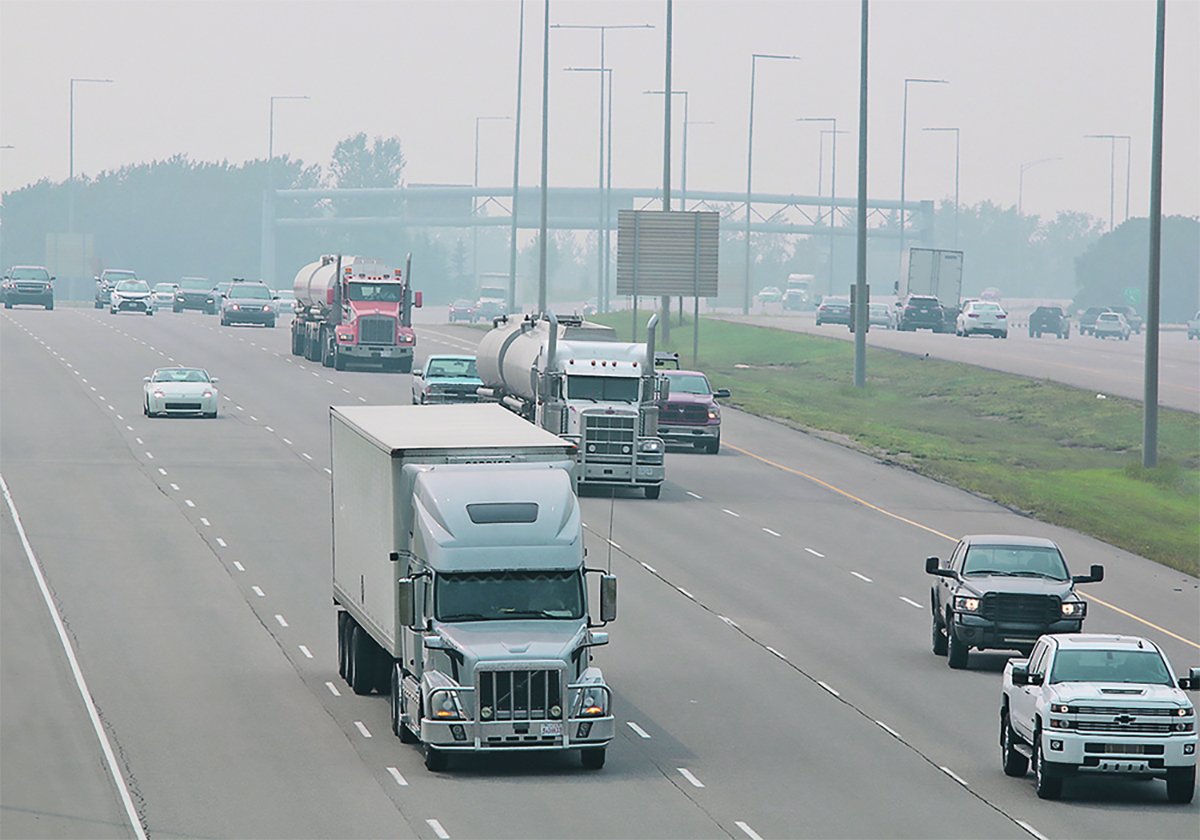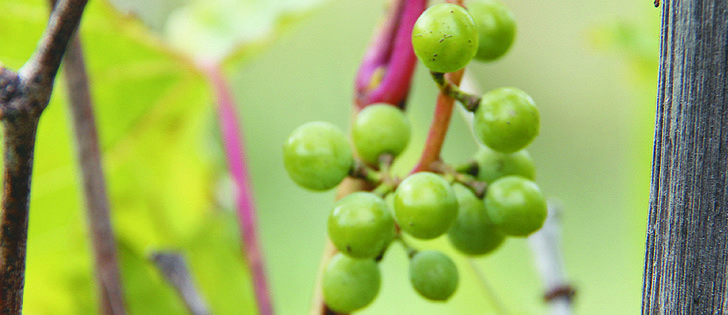Experiment successful | B.C. grower finds the right grape for his colder climate
MCBRIDE, B.C. — Stalk upon stalk of wine grapes descend in rows in the mountain town of McBride.
Snow-capped peaks and wine grapes aren’t usually companions, but in the Mortensen family’s vision, people sip their glass from a patio and remark how McBride wine tastes like California wine did long ago.
At 53.3 degrees latitude, Kelly and Sharon Mortensen are set to become wine pioneers in Canada.
The family has led an elaborate experiment on their small B.C. farm over the last 10 years. Behind their house near the village of about 600 people is the beginning of this dream: two and a half acres of wine grapes, many still juvenile plants.
Read Also

Alberta cracks down on trucking industry
Alberta transportation industry receives numerous sanctions and suspensions after crackdown investigation resulting from numerous bridge strikes and concerned calls and letters from concerned citizens
Their vines bore clusters of healthy grapes this year, which mean the plants have proven they can survive and thrive in -40 C temperatures.
The family has tried half a dozen varieties over the years and will now plant two or three successful ones on the remaining 2.5 acres of their five acre vineyard.
The new crops will need a few years to mature, but the experimentation is largely over.
“We’ve talked about it so many years, and now it’s finally happening,” Kelly said.
The Mortensens are among the entrepreneurial farmers anticipating the changes that will come with climate change. Climatologists predict that wine growing regions will shift significantly in the next 50 years. If they can produce wine, Kelly said theirs will be the northern-most winery using grapes in North America.
“The Okanagan may end up being too hot and dry,” Sharon said.
“Climate change is creeping up the world to the poles, and we’re finding the weather here is quite different from … when we bought our property.”
The month-to-month temperature differences between McBride and Kelowna in the Okanagan Valley are 3 to 5 C, with similar extreme highs and lows. A winery near Salmon Arm, B.C., which is two to three degrees in latitude south of McBride, currently claims the title of “most northern (wine grape) vineyard in Canada.”
Greg Jones, a professor and research climatologist at Southern Oregon University who studies wine grape growing, said most people view climate change as a gradual temperature rise over time. It can be more variable than that, which can cause problems for wine grapes.
Climate change hasn’t yet put a damper on B.C wines. In fact, the number of B.C. wineries has tripled in the last 10 years, mostly in the Okanagan.
While the Mortensens’ property is a six to seven hour drive north from the Okanagan, they say it has all the elements necessary for growing wine grapes, such as clean water and air.
Kelly said they have also discovered unintended perks about living in a colder climate. For one, the pests have not yet bothered his grapes. Also, the temperatures are better suited for ice wine, in which the grapes must be picked and processed at -8 C or lower.
Okanagan producers are not guaranteed those temperatures until mid-winter, while in McBride they often come in October.
Wine grapes, as opposed to table grapes, cannot ripen indoors, meaning a longer frost-free season is needed. Wine grapes also require more sugars to produce the alcohol and taste.
The Mortensens’ grapes are hybrids bred for a cold climate.
Kelly hopes the orchard will be in production within five years.
He said they can plant more vines and learn how to manage them now that they have rootstock that is acclimatized to their valley.
Manfred Freese of the B.C. Grapegrowers Association said 150 frost-free days is ideal, but growers can get by with 120 days. They also need the temperature on those days to add up to 1,400 degrees.
He said it’s more than just the latitude; it’s also site dependent.
“If you’ve got valleys where cool air pools, well that’s obviously a strike against you,” Freese said.
Kelly said the environment in the Robson Valley is well-suited to making organic wine because there is little industry to pollute the ground and water.
“You don’t get any of the heavy metal pollutants,” he said.
“If you put a California wine on the table, I can tell you it’s from California just the way it affects my palette with the amount of metals and pollution.”
The Mortensens are attempting to be self-sufficient. They let the chickens and horses graze in the orchard to keep weeds down and provide manure.
There is still plenty of work to do before McBride has its first local wine tasting, but the Mortensons don’t appear daunted by the challenges. In fact, it may be good for the wine.
“A good wine is the sign of a good struggle so let these things struggle,” Kelly said.















